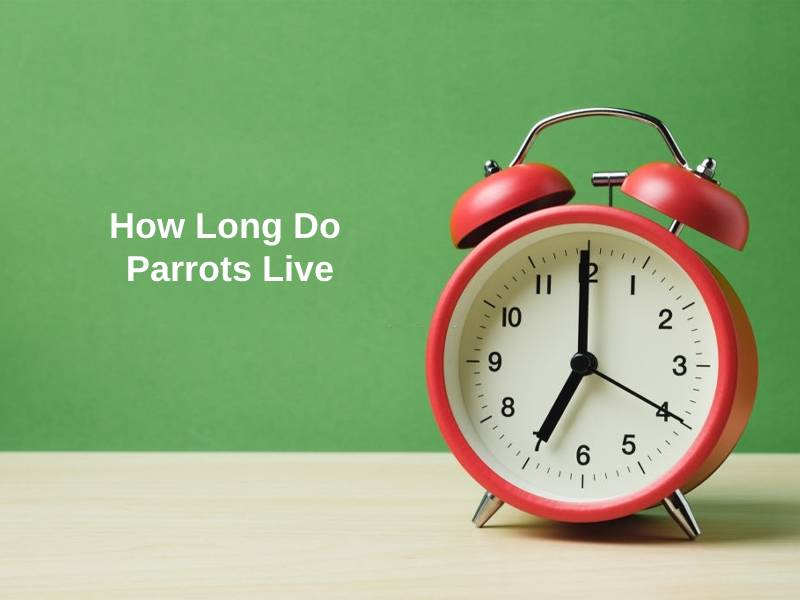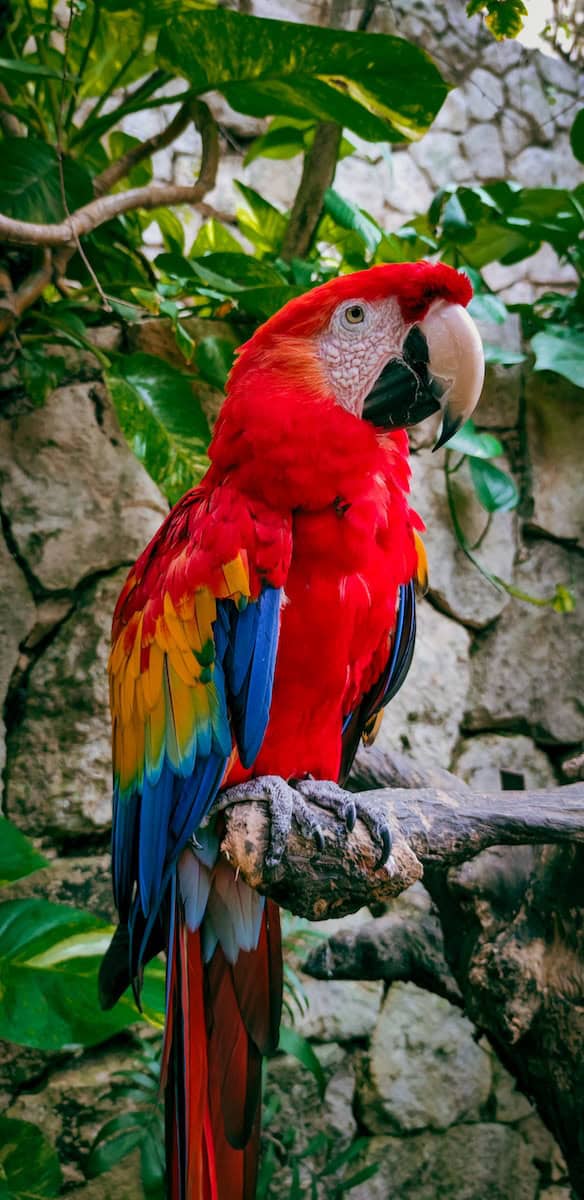Exact Answer: Upto 80+ Years
Parrots consist of a group of birds that comprises 279 different species. They differ in size from tiny birds that can fit in the palm of your hand to big birds the size of a cat, and their lifespans are just as variable, depending on the species.
Parrots are unique among birds that are kept as pets because multiple species have the potential to be by your side the entire life. They also outlast their owners. Parrots survive longer in captivity than in the wild because they are less prone to encounter predators and illness while living in a home. That doesn’t mean they are immune to sickness and reduced lifespans.
As a general condition, the larger the bird, the longer the predicted lifespan is. It heavily depends on a healthy bird kept under excellent conditions. There is a wide variety in the age that pet birds might reach, and definitely, some will survive longer or maybe shorter amounts of time than usual.

How Long Do Parrots Live?
On observing parrot lifespans, it is necessary to check that the various ways of studying their age. The lifespan considered might be the average, the potential, as well as the median lifespans. But the results are expected to be entirely different for each of the cases. There is also a noticeable difference between a parrot’s lifespans in the wild and its lifespan in confinement.
But one thing is for sure that parrots are amongst the most long-lived pets out there. Large species, particularly cockatoos, have been validated to be capable of making it to 80+ years. Even small parrots like parrotlets can live for up to 20 to 30 years, even though most of them pass away much quicker than that due to bad care.
Regardless of the type of parrot it is, one should make sure to give some attention to what their life would look like in some years. We can never foretell where and how things are going to be, but many larger parrots have the potential to outlive their owners, so it is necessary to think deeply and carefully before adding one to the family.

The list below contains some popular species of parrots and their potential lifespans. Must note that this is a list of potential lifespan. As mentioned below, there are lots of constituents that determine how long the parrot ends up existing. With a union of care and a portion of luck, maybe they could make it to the age listed below as follows.
| Type of Parrots | Lifespan |
| Cockatiels | 10 to 15 years |
| Parakeets | 5 to 18 years |
| Amazon Parrots | 25 to 75 years |
| Macaws | 30 to 50+ years, depending on their species |
| African Gray Parrots | 40 to 60+ years |
Why Would Parrots Live That Long?
Many factors are necessary for a parrot to live that long, and the most common factors that affect a parrot’s life are nourishment, veterinary care, and mental health.
The bird will grow when provided with a safe and clean enclosure with lots of space to climb and spread its wings. They must also get lots of direct sunlight or full-spectrum lighting instead of artificial lights alone. It will enable them to a healthier process of nutrients and establish an appropriate day and night cycle for their mental well-being too.
Some birds should also be housed with other birds because they are of the flock species. Humans can never take the place of another bird, no matter how hard they try. If someone is purchasing a pet bird, they must pick one from a reliable breeder. They should be able to present the owner with information about their health that is related to the bird’s progenitors because genetics are also a key factor for their longevity.

The owner should give the parrot a suitable diet that will also help keep it healthy and prevent diseases. A well-balanced diet includes grains, seeds, pellets, nuts, and fresh fruits and vegetables. A balance of vitamins, protein, fats, and minerals such as calcium from sources like boiled eggshells is crucial in sustaining a bird’s health and longevity.
Giving the bird the nutrition that includes only sunflower seeds which is a bird’s favorite, is one of the worst things any owner can do. These are rich in fat but have very few nutritional components.
Conclusion
Parrots in captivity live much longer than their wild siblings because they are less prone to predators and diseases. The parrot will thrive best if provided with a secure cage with sufficient space for it to climb and spread its wings. It is necessary to keep the cage area clean and giving the bird an appropriate diet that can help it stay healthy and combat diseases that might shorten its lifespan.
Genetics also plays a crucial role in the bird’s longevity, so choosing a bird from a reliable breeder who can provide needful information about the bird’s history and the necessities.